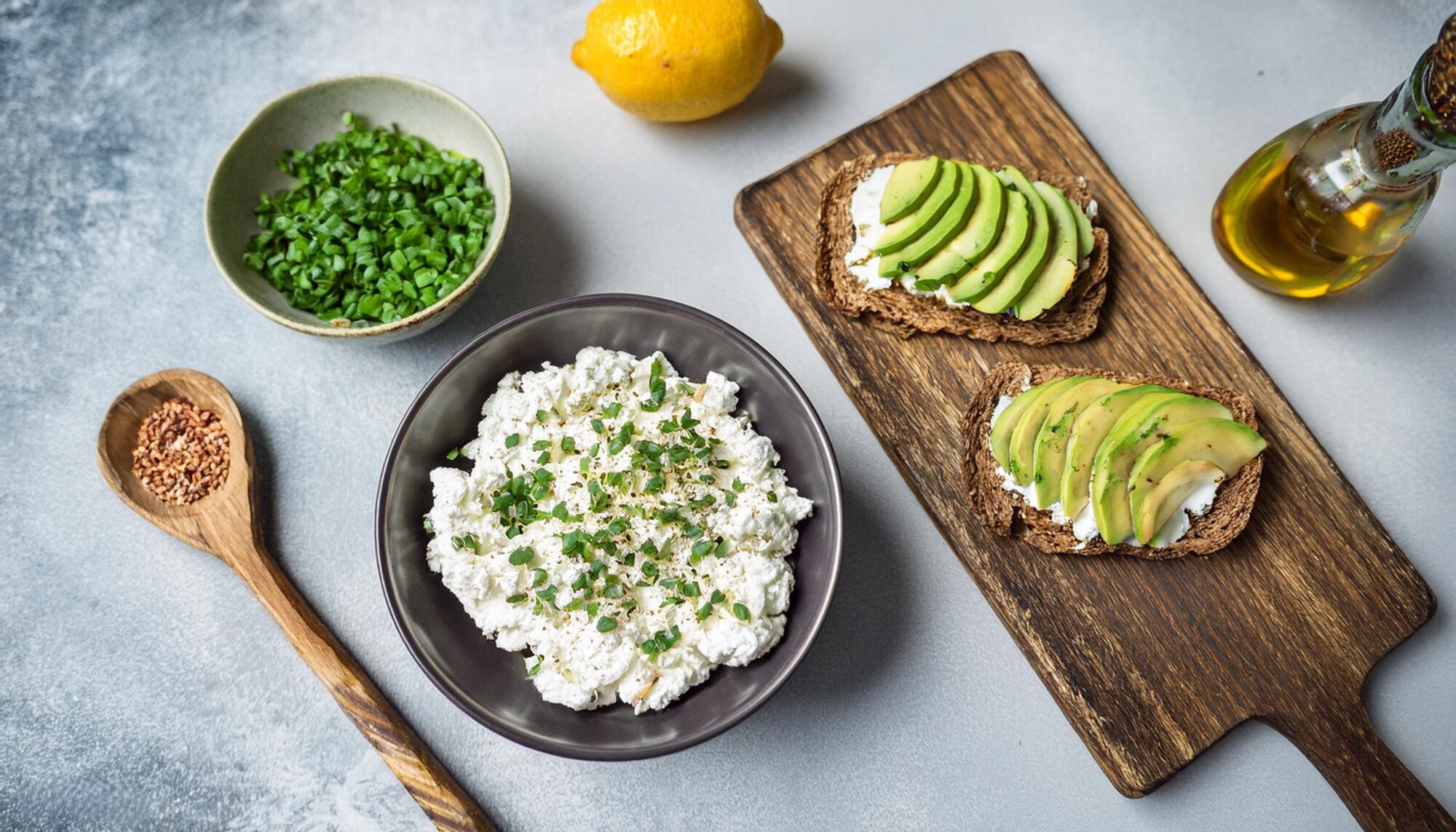Have you ever wondered if there’s a plant-based alternative to cottage cheese that doesn’t sacrifice taste or texture? You’re not alone! The plant-based food market has been booming, with more people than ever seeking vegan substitutes for their favorite dairy products. In fact, did you know that the global vegan cheese market is projected to reach $4.42 billion by 2027? That’s some serious love for vegan cheese! Among the many options, vegan cottage cheese has quickly gained popularity as a creamy, protein-packed alternative.
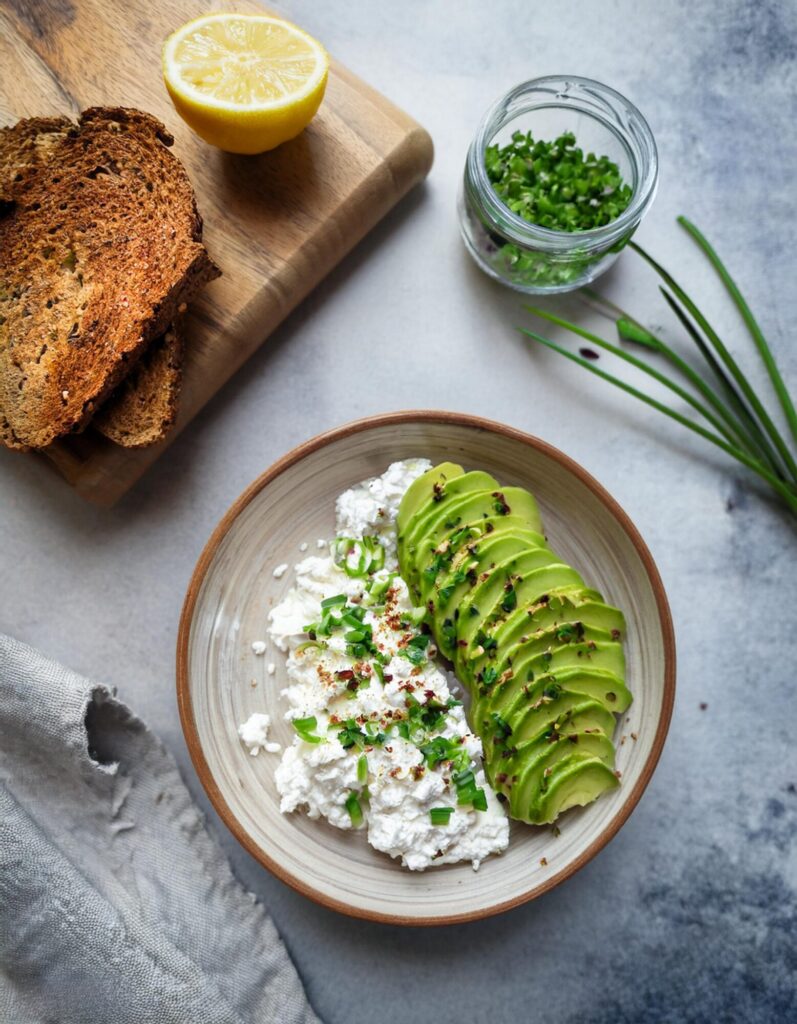
As someone who made the switch to plant-based eating a few years back, I remember being totally lost when it came to cheese alternatives. I’ve made my share of mistakes (like the time I tried to substitute vegan cream cheese in a pasta dish… yikes), but vegan cottage cheese was a surprising game changer for me. It’s one of those products that you can actually enjoy while reaping the benefits of a healthier lifestyle. Plus, it’s way easier on the stomach than dairy-based options, especially if you’re lactose-intolerant like I am.
So, what’s all the fuss about vegan cottage cheese, and why should you give it a try? Let’s dive in and explore everything you need to know about this dairy-free delight!
What is Vegan Cottage Cheese, Anyway?
Alright, so let’s break this down. Vegan cottage cheese is exactly what it sounds like a dairy-free alternative to traditional cottage cheese. Now, if you’re like me, when I first heard about it, I was skeptical. I mean, how can you make a cheese without, you know… cheese? But here’s the kicker thanks to the magic of plants, it’s possible to make a creamy, tangy, and delicious substitute without ever needing a cow.
Most vegan cottage cheese products are made using a blend of ingredients like cashews, almonds, or tofu. These serve as the base, while additional ingredients like nutritional yeast (for that cheesy flavor), lemon juice, and apple cider vinegar help replicate the tangy kick you’d expect from regular cottage cheese. Some brands also use pea protein to amp up the protein content, making it a nutritional powerhouse. The result? A soft, slightly chunky cheese that mimics the texture of its dairy counterpart without all the tummy troubles that come with lactose.
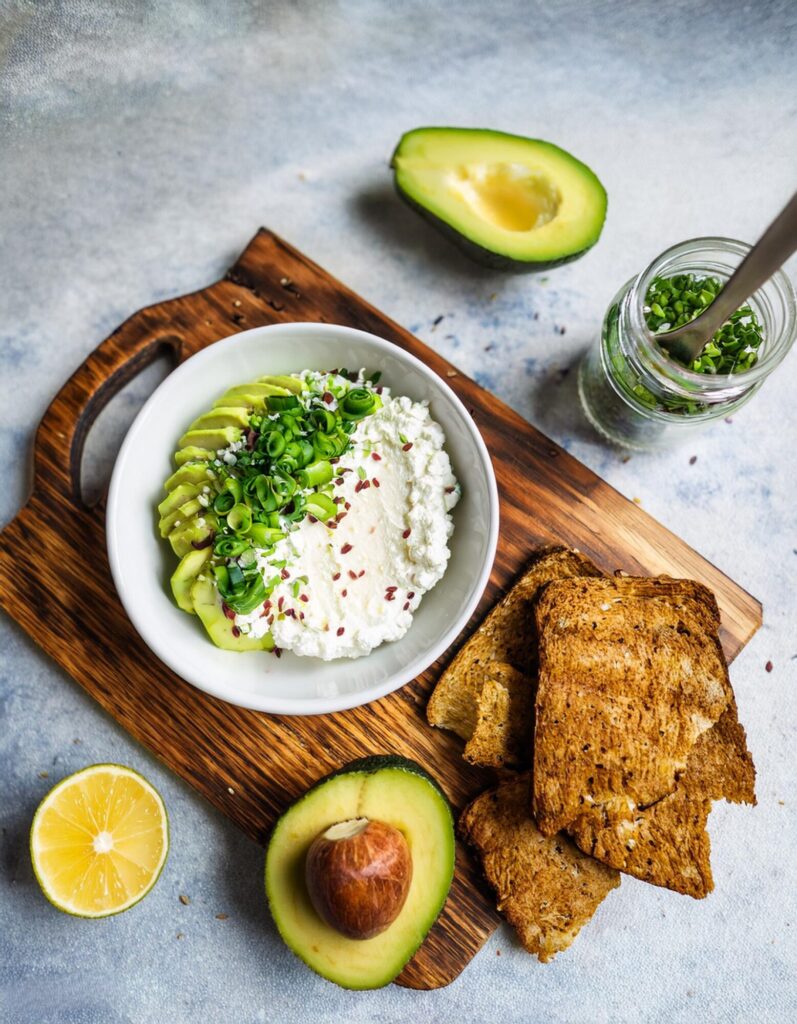
I remember my first time trying vegan cheese. I had just decided to give up dairy, and, well, let’s just say the first couple of options I picked were not winners. I made the rookie mistake of grabbing some random vegan cheese substitute without checking the ingredients or reviews. The texture was chalky, and it tasted like cardboard yeah, that bad. But after a bit of research and trial-and-error, I landed on a brand of vegan cottage cheese that was actually tasty! It wasn’t an exact match for the real deal, but it was close enough that I could mix it into dishes and not feel like I was missing out.
The real beauty of vegan cottage cheese is its versatility. You can eat it just like traditional cottage cheese on toast, with fruit, or mixed into salads. Plus, it’s a great base for dips and spreads. The possibilities are endless. And while you might think, “Why bother?” the truth is that for people who are vegan, lactose-intolerant, or simply trying to reduce their environmental footprint, it’s a fantastic alternative.
On that note, one thing I didn’t expect when switching to vegan cottage cheese was how much easier it was on my stomach. I’ve been lactose-intolerant for years, and cottage cheese always left me feeling bloated and, well, uncomfortable. But vegan cottage cheese? It’s light, easy to digest, and doesn’t leave me regretting my meal choice an hour later.
Now that we know what it is, let’s get into how it stacks up against the traditional version. Spoiler: It’s not just for vegans! Even die-hard dairy fans might be pleasantly surprised.
How Does Vegan Cottage Cheese Compare to Traditional Cottage Cheese?
So, how does vegan cottage cheese stack up against the traditional kind? If you’re used to regular cottage cheese, I won’t lie there are some differences. But, in many ways, those differences are what make vegan cottage cheese such a great alternative. Let’s start with the most important part: nutrition.
Traditional cottage cheese is well-known for being a high-protein, low-fat food. A half-cup serving can pack about 14 grams of protein, which is why it’s popular among athletes and those looking to up their protein intake. Vegan cottage cheese? Well, that depends on the brand, but it can be surprisingly close in protein content! Brands that use pea protein or tofu as a base can give you anywhere from 10-14 grams of protein per serving, making it a solid option for those keeping an eye on their macros.
However, one of the biggest perks of vegan cottage cheese is that it’s completely lactose-free. For anyone with lactose intolerance or sensitivity, this is huge. I can tell you from experience, traditional dairy can wreak havoc on your digestive system, leaving you bloated and uncomfortable. Vegan versions skip the lactose entirely, which means no more post-meal discomfort. And honestly? That’s one of the reasons I love it so much.
Now, let’s talk taste and texture. This is where things get a bit tricky. Traditional cottage cheese has that signature curdy texture that’s hard to replicate. Vegan cottage cheese is usually a bit softer and creamier, with smaller curds or even a smoother consistency depending on the brand. Does it taste the same? Not exactly, but it’s pretty darn close, especially if you’re mixing it into recipes like smoothies, salads, or pasta dishes where the texture isn’t the main event.
One thing that surprised me about vegan cottage cheese was how neutral the flavor was. Unlike some other vegan cheeses that have an overwhelming “fake” taste, this stuff is mild, which makes it versatile. You can easily mix it with fruits for a sweet snack or add some spices for a savory dish. It’s a blank canvas, ready for whatever flavors you want to throw its way.
Another important point? Vegan cottage cheese often has fewer additives and questionable ingredients than traditional dairy products. Many brands focus on simple, whole-food ingredients, which is a big win for those of us trying to clean up our diets. And while dairy cottage cheese can sometimes be high in sodium, some vegan options are lower, giving you more control over your salt intake. So, if you’re trying to cut down on processed foods, this might be a good switch.
All in all, vegan cottage cheese holds its own pretty well when compared to the traditional stuff. The texture and flavor might be slightly different, but nutritionally speaking, it’s a strong contender. And for anyone who can’t tolerate dairy or is trying to live more sustainably, it’s a no-brainer.
7 Surprising Benefits of Vegan Cottage Cheese
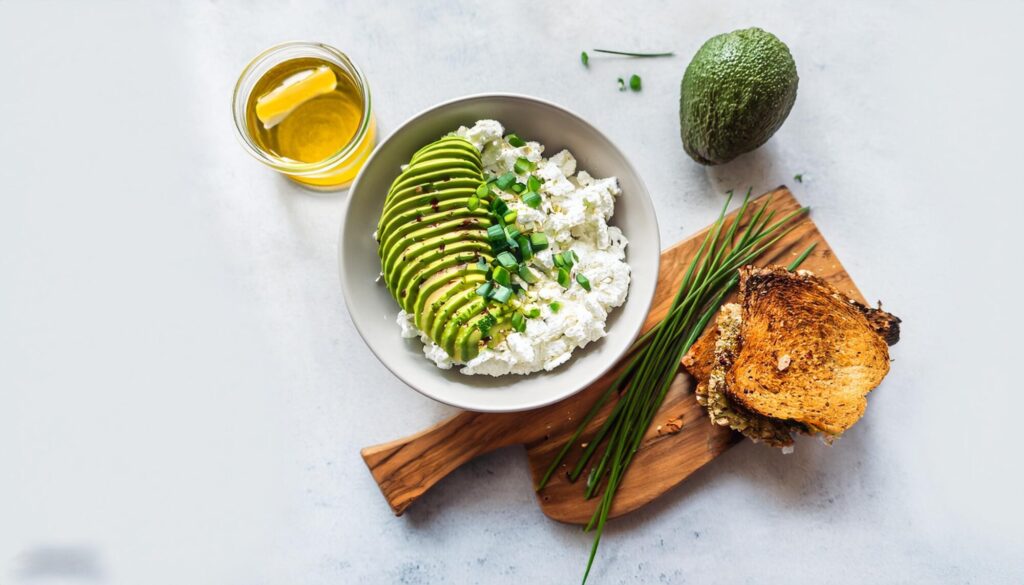
If you’re still on the fence about whether to give vegan cottage cheese a try, let me break it down for you. Here are seven surprising benefits that might just convince you to make the switch.
1. High Protein Content
Yep, we already touched on this, but it’s worth repeating. Vegan cottage cheese can be just as protein-packed as the traditional kind, especially if it’s made with pea protein or tofu. This makes it a great option for vegans, vegetarians, or anyone looking to increase their plant-based protein intake without relying on animal products.
2. Lactose-Free
This is probably the biggest win for me. If you’ve ever struggled with bloating, gas, or general stomach discomfort after eating dairy, you know how much of a game-changer a lactose-free option can be. Vegan cottage cheese lets you enjoy a creamy, cheesy snack without any of the digestive drama.
3. Easy to Digest
Because it’s made from plants, vegan cottage cheese is generally easier on the digestive system than dairy-based products. Even if you’re not lactose intolerant, some people find that dairy can be hard to digest. Vegan alternatives are gentler on the gut, which is especially helpful if you’re trying to reduce inflammation or improve overall digestive health.
4. Environmentally Friendly
Here’s something that’s often overlooked: switching to vegan alternatives is way better for the planet. Dairy farming has a huge environmental footprint from methane emissions to water usage. By choosing plant-based products like vegan cottage cheese, you’re making a more sustainable choice that helps reduce your carbon footprint. It’s a small switch with a big impact.
5. Heart-Healthy
Vegan cottage cheese is often lower in saturated fat than its dairy counterpart. Saturated fats, commonly found in animal products, can raise cholesterol levels and increase the risk of heart disease. By going vegan, you’re likely consuming fewer of these harmful fats, which is better for your heart in the long run.
6. Supports Weight Loss
Because it’s high in protein and lower in fat, vegan cottage cheese can be a fantastic food to include in a weight-loss plan. Protein helps you feel full longer, meaning you’re less likely to overeat later in the day. Plus, many vegan versions are low in calories, so you can enjoy a generous portion without worrying about blowing your calorie budget.
7. Versatile in Recipes
Finally, vegan cottage cheese is super versatile! You can use it in everything from smoothies to salads, dips, and even desserts. Personally, I love stirring it into a bowl of berries and granola for breakfast or using it as a creamy base for savory dips. Its mild flavor means it can blend into a variety of dishes without overpowering other ingredients.
Vegan Cottage Cheese Recipe: Make Your Own at Home
Okay, I have to admit when I first tried making vegan cottage cheese at home, it didn’t exactly go as planned. The first time around, I ended up with a lumpy, watery mess that tasted more like lemony tofu than anything resembling cottage cheese. But, hey, live and learn, right? After a few more tries, I finally nailed down a recipe that’s simple, tasty, and quick to whip up.
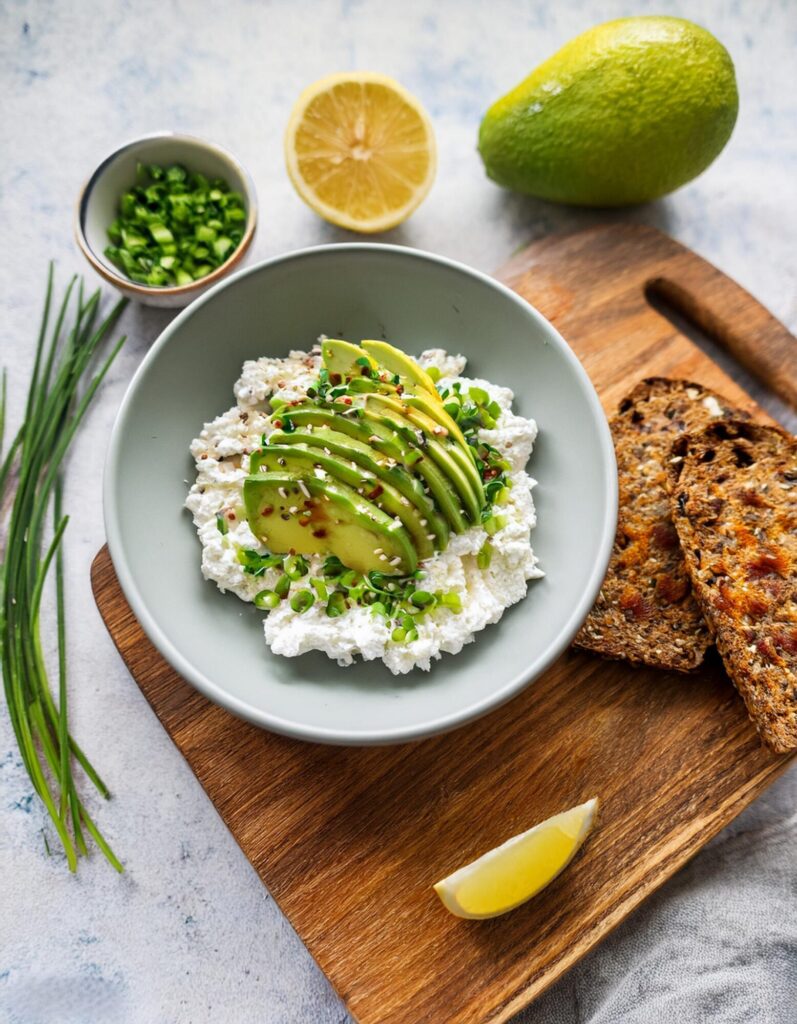
Here’s my go-to homemade vegan cottage cheese recipe:
Ingredients:
- 1 cup of firm tofu, crumbled
- 2 tablespoons of nutritional yeast
- 1 tablespoon of apple cider vinegar
- 1 tablespoon of lemon juice
- 1 tablespoon of olive oil
- Salt to taste
- Optional: a pinch of garlic powder or onion powder for extra flavor
Instructions:
- In a medium bowl, crumble the tofu into small curds.
- Add the nutritional yeast, apple cider vinegar, lemon juice, olive oil, and salt.
- Mix well, adjusting the seasonings to taste.
- Let it sit for 10-15 minutes to absorb the flavors. The result should be a creamy, tangy mixture with a texture similar to traditional cottage cheese.
That’s it! Simple, right? And trust me, it tastes even better after chilling in the fridge for a bit. It might not be exactly like dairy cottage cheese, but it’s a close second. Plus, it’s a fun recipe to experiment with try adding different herbs or spices to suit your taste.
Best Vegan Cottage Cheese Brands You Should Try
If you don’t feel like making it yourself, no worries. There are plenty of great vegan cottage cheese brands out there. Here are a few that I’ve tried and loved:
- Good Karma: This brand’s plant-based cottage cheese has a smooth, creamy texture and a mild flavor. It’s made with a base of sunflower seeds and pea protein, so it’s also high in protein.
- Kite Hill: Known for their almond-based products, Kite Hill makes a delicious vegan cottage cheese that’s perfect for mixing into salads or spreading on toast.
- Follow Your Heart: Their vegan cottage cheese has a soft, curd-like texture and a tangy flavor that’s surprisingly close to the real thing. Plus, it’s made with simple, clean ingredients.
When choosing a vegan cottage cheese, look for one that has a high protein content and minimal additives. Trust me, some brands can taste overly processed, but the ones above get it right.
Creative Ways to Use Vegan Cottage Cheese in Your Cooking
Now that you’ve got your vegan cottage cheese ready to go, how can you use it? Here are a few ideas to get your creative juices flowing:
- Smoothies: Blend a scoop into your morning smoothie for extra creaminess and a boost of protein.
- On Toast: Spread it on whole-grain toast and top with avocado or fresh tomatoes for a quick, satisfying snack.
- In Salads: Mix it into salads for a creamy texture that complements crunchy veggies.
- As a Dip: Stir in some herbs and garlic powder to make a savory dip for chips or veggie sticks.
- Pasta: Use it as a creamy base for vegan lasagna or stuffed shells it adds a nice cheesy flavor without the dairy.
Personally, I love using it as a topping for baked potatoes. The creaminess contrasts perfectly with the crispy skin of the potato, and it’s such a comfort food combination that doesn’t make me miss dairy at all.
Conclusion
So there you have it vegan cottage cheese is not only a great alternative to traditional cottage cheese, but it’s also a nutritious, versatile, and eco-friendly option. Whether you’re lactose-intolerant, vegan, or just curious about plant-based foods, it’s definitely worth a try. Plus, with all the health benefits and easy ways to incorporate it into meals, it’s a switch that makes sense for just about anyone.
Give it a shot whether you try making it at home or grab one of the recommended brands from the store. And don’t forget to share your favorite ways to enjoy vegan cottage cheese! Let’s swap recipes, tips, and maybe even a few kitchen fails in the comments!
Loved this Vegan Cottage Cheese recipe? You’re going to want to try more plant-based favorites! Check out these easy and delicious recipes: Vegan Chicken Nuggets Recipe, Vegan Breakfast Burrito with Tempeh, and Quick Avocado and Black Bean Tacos for more mouth-watering, dairy-free options.
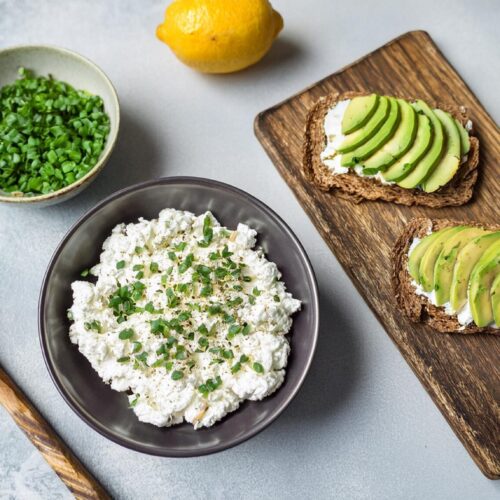
7 Surprising Benefits of Vegan Cottage Cheese You Need to Know|Recipe
Ingredients
- 1 cup firm tofu crumbled
- 2 tablespoons nutritional yeast
- 1 tablespoon apple cider vinegar
- 1 tablespoon lemon juice freshly squeezed
- 1 tablespoon olive oil
- 1 teaspoon garlic powder optional, for extra flavor
- 1/2 teaspoon onion powder optional
- Salt to taste
- Fresh herbs like chives or parsley (optional, for garnish
Instructions
- In a medium bowl, crumble the tofu into small curds using your hands or a fork. You want a chunky consistency, similar to traditional cottage cheese.
- Add the nutritional yeast, apple cider vinegar, lemon juice, olive oil, garlic powder, and onion powder to the crumbled tofu. Stir until all the ingredients are well combined.
- Add salt to taste, adjusting as necessary. If you want a more savory flavor, feel free to add extra garlic or onion powder.
- Place the mixture in the fridge for at least 30 minutes to allow the flavors to meld together.
- Once chilled, garnish with fresh herbs like chives or parsley and serve! This vegan cottage cheese is perfect on toast, in salads, or as a dip.
Notes
- Suitable For:
- Breakfast: Spread on toast or bagels, topped with fruit or veggies.
- Lunch: Use as a protein-packed topping for salads or sandwiches.
- Snacks: Serve with crackers, veggie sticks, or pita chips.

